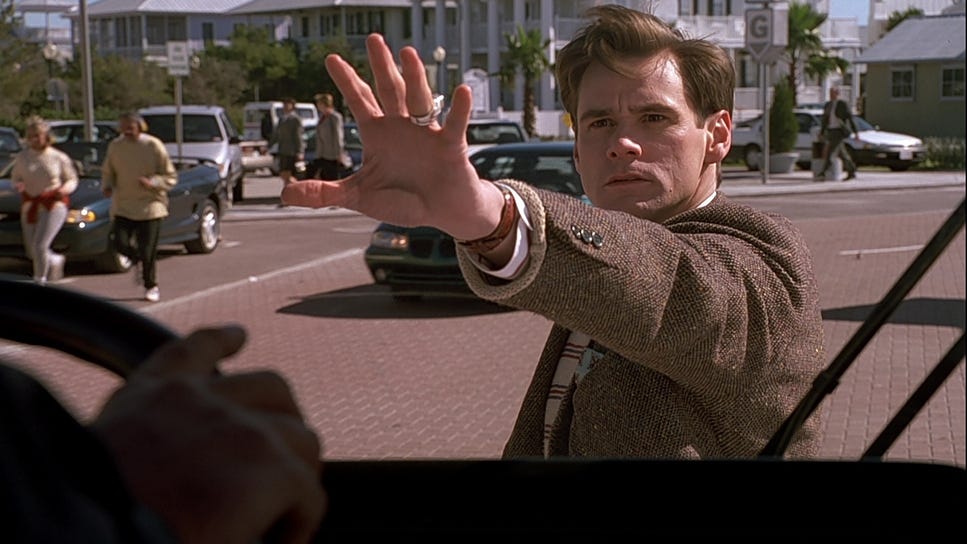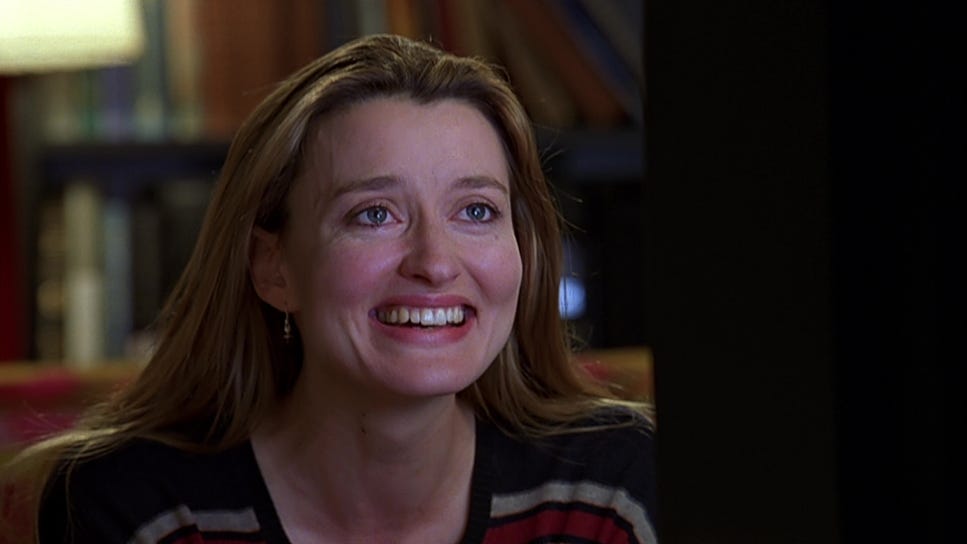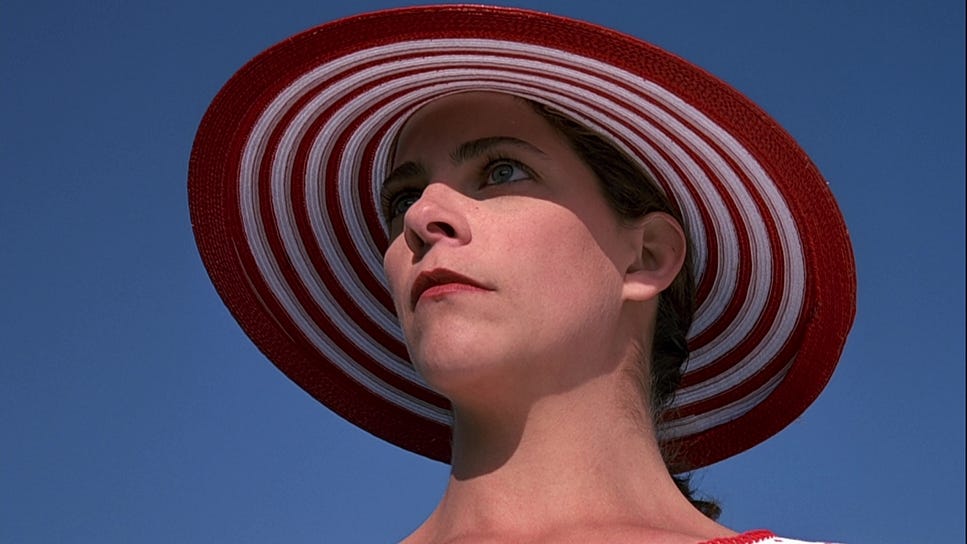🎬 #37 What Is Directing Anyway?
Some people might say its like holding onto the back of every person’s head in the audience and pointing it at exactly what you want them to see at any given moment in time. You might even make all kind of comparisons to the conductor of an orchestra or the architect of a building or some other appropriate mono-artistic master planner. A leader with a group of dedicated crafts people helping them get the vision they had in their minds out onto a pixel sharp screen.
It kind of is all these things but, more, I think it’s someone who makes the most ‘right’ choices. Someone who brings people together and inspires them so that they feel they can contribute. Then the director can try to make another ‘right’ choice from the options in front of them. Say, choosing between two ideas that a costume designer has come up with or between 5 different executions of concept art for the villain’s house, or between take 1 and take 5. Of course the ‘right choice’ is the subjective bit. What’s right to one director will be wrong to another, even if they have to choose between the same things. Directing then, to me, is being inward enough to listen to your gut but being outward [metaphorically speaking] enough to communicate that feeling to your cast and crew. It’s the balance between outward technicality and inward artistry. You can talk all day about the visual differences between a 40mm and a 75mm or a 13mm lens. But what a director has to worry about is not only what it looks like, but how it communicates, how it makes this moment in the story feel and how it transmits that feeling to the audience.
It’s about being offered a thousand paths and knowing that you are setting off down the right one, then convincing everyone else to join you. This week there are two great choice makers and the fruitions of a million decisions.
Happy choosing, happy viewing
Bry
FILM ONE: THE TRUMAN SHOW
1998 Dir Peter Weir
I feel like everyone should see this film. And at the same time I think that everyone has seen it. But as my friend Dave [and deep The Truman Show lover ] rightfully points out, you’d be surprised how many people it’s passed by.
But rest assured, Peter Weir makes all the right choices yet again. Resulting in a film that is heartwarmingly old fashioned enough to prove ‘they don’t make them like they used to’ wrong and at the same time so brilliantly original that it says ‘we’ve never made anything quite like this before.’
First there was the choice to take Andrew Niccol’s original screenplay and make big changes tonally. His original take was much darker and set in a version of New York City. Weir, I think, rightfully, only because we’ll never see the other version, makes it much more mid tone, much more like the Truman show itself would be. PG, so it would cater to everyone, and everyone would find something to love about it.
Next, he cast Jim Carrey, who at that point in time had just had a string of comedy hits that made him a hugely bankable comic actor. Weir and his crew made the brave choice to give him the lead in a more serious film on which literally everything hangs. Carrey was the perfect choice to inhabit the kind of dual roles Truman has to play. The charismatic unwitting star of the show, and the Truman who is shaken by the things he’s seen and finds solace with his best friend in seemingly private moments. Carrey draws you in both physically and emotionally - clearly someone who knows vividly what its like to be followed by cameras both in his personal and professional life.
Weir and Niccol made another great choice by letting us in on the premise from the start. We’re both watchers of the The Truman Show show and participants in the behind the scenes that make the show possible. This pov lets us experience the conflict that the clash of these two world’s brings about. You could imagine another version of the film where we’re fixed firmly on Truman’s point of view and the ending is a twist, a reveal to us, as well as him. But it wouldn’t have the heart or play into the strength of the premise. There wouldn’t be the dramatic tension of knowing everything that Truman doesn't. We’re always ahead of him until the turning point just near the end of the second act where for once Truman has escaped from everyone’s gaze and is way ahead of us.
The interplay of the shows creator ‘Christof,’ portrayed by Ed Harris, directing scenes while at the same time seeing them unfold as an audience, puts us in an interesting position. We already know that we’re watching a film, then we’re shown an emotional scene in the show that the film is about, while being privy to ‘how the sausage is made.’ We hold both a ticket to the premiere and backstage pass. And yet what’s amazing about Weir’s choice here is that it makes the emotion more impactful, it doesn’t distance us as you might think it would. Watching Christof cue the keyboard player [played by composer Philip Glass who worked on the music for the film] and ask to cut to a close-up doesn’t spoil the moment, or make it too meta. It makes it soar - because it’s a choice that is emotionally bound to the story and the characters - it’s not an empty stylistic one. The fans of the show love Truman and the man behind it all, the creator of the show and orchestrator of his life may love Truman most of all. The making of Truman and the unravelling of him as a character is the star here.
The choice to show us just how they are able to pull this illusion off and make the show work is hugely entertaining and so it makes it easy for us to buy into the concept effortlessly. It doesn’t feel like exposition at any point in time, no mean feat in a film that has to have the audience believe the conceit is so impressive that Truman would never have suspected anything all these years.
The supporting cast is excellent and the prize for most romantic subplot executed with the least screen time potentially ever goes to this film. As Natascha McElhone’s Lauren/ Sylvia captures Truman’s heart while trying to reveal the truth to him. That means there are even more emotional stakes to him discovering that true nature of his world. The cleanly lit, almost too perfect cinematography gives everything the heightened reality and alluring perfection of a holiday commercial. Where you know that everything is too good so something must be wrong. And much like everything else in the film, the score by Burkhard Dallwitz with additional music by Philip Glass, doesn’t put a note wrong.
There is an incredibly universality to the premise, a childlike wonder to it - and a prescience that we’re still coming to grips with. We are all the protagonist in the movie of our lives in 2022. Only these days we seem to be willingly to point the cameras at ourselves - we are both director and star of the show.
TL;DR why should I spend 1 hr 43 mins of my precious life watching this? Tune into Peter Weir’s The Truman Show and get a front row seat into Carrey’s charmingly understated yet operatic Truman as he battles to escape the only world he’s known and discover the truth that’s been just out of frame his whole life.
*Available for a small rental fee on Amazon, Apple, Google Play, YouTube and Sky Store.
Fact: Weir wanted to install hidden cameras in cinemas showing the film when it opened, and cut to them during the film. So the audience would see themselves watching the film for a brief moment before cutting back to the film.
FILM TWO: NITRAM
2021 Dir Justin Kurzel
Kurzel’s controversial film is a brave choice by it’s very existence. Films that are based on real tragedies are always loaded with expectation and trepidation. One simple choice that Kurzel makes here is to never utter the real person’s name. Instead the character only goes by the title of the film - their name spelt backwards, like a code you might use when you’re a kid.
Go into the film without googling anything about it - just as I did. There you’ll find a film that both repels and draws you in, it perches you at the edge of your seat in fear and anticipation. That’s down to Kurzel’s choice to quietly build unease gradually, right from the start - mostly built around Caleb Landry-Jones’s intoxicatingly erratic performance. Like an iceberg that could split and cleave off into the ocean creating a tidal wave at any moment. All you can do is sit, be at the mercy of this restrained spectacle, a force of nature that’s incomprehensible.
Like the fireworks Nitram is obsessed with, there’s no telling how long the fuse will burn for or when exactly everything will go off. The framing throughout forces Nitram to the position of outsider looking in, staring out to waves, looking into reflections, into himself and even he doesn't understand how to feel better or exactly what’s wrong with him.
Kurzel’s choice to use his brother’s [Jed Kurzel’s] score sparingly paints Nitram’s family life with a blankness, a void that makes the scenes even more uncomfortable to watch. Though this isn’t to say that anything is one note or one dimensional, there are great moments of warmth in the film. No-one here is a caricature of any simple film trope. Everyone has the complexity and reality of character that lends Nitram a humdrum, down to earth feeling. It captures life in between bigger moments, the simple reality of existence.
Anthony La Paglia as Nitram’s father or ‘Dad’ as he’s referred to in the credits, is particularly great. Portraying someone who’s trying his best to keep his family together while also struggling with his own frailties. I couldn't believe it was La Paglia, and Judy Davis as ‘Mum’ is cooly moving, someone who’s maybe long given up any hope and is trying hard not to give into how much easier that may be. Even Kurzel’s choice to call them Mum and Dad is telling, he wants no identity for them other than as film characters, not the real people.
There is an almost impossible to believe quality to the story that makes it all the more transcendent. A series of choices that puts the character on a path and we’re passengers, strapped in for the ride, fearfully waiting for him to hit the accelerator or the brakes, not knowing which is worse.
TL;DR why should I spend 1 hr 52 mins of my precious life watching this? Maybe not one for date night or if you’re feeling particularly delicate - Kurzel’s unflinching film takes us into the life of someone on the edge, who is mentally ill, and yet doesn't explain away any of his actions easily - really, truly powerful.
*Available for a small rental fee on Amazon, Apple, Google Play, YouTube and Sky Store.
Fact: Caleb Landry Jones won best actor at the Cannes Film Festival. You might also recognise him as the many times mentioned, seldom seen ‘Lewis,’ from Breaking Bad - the best friend of Walter Jnr.











